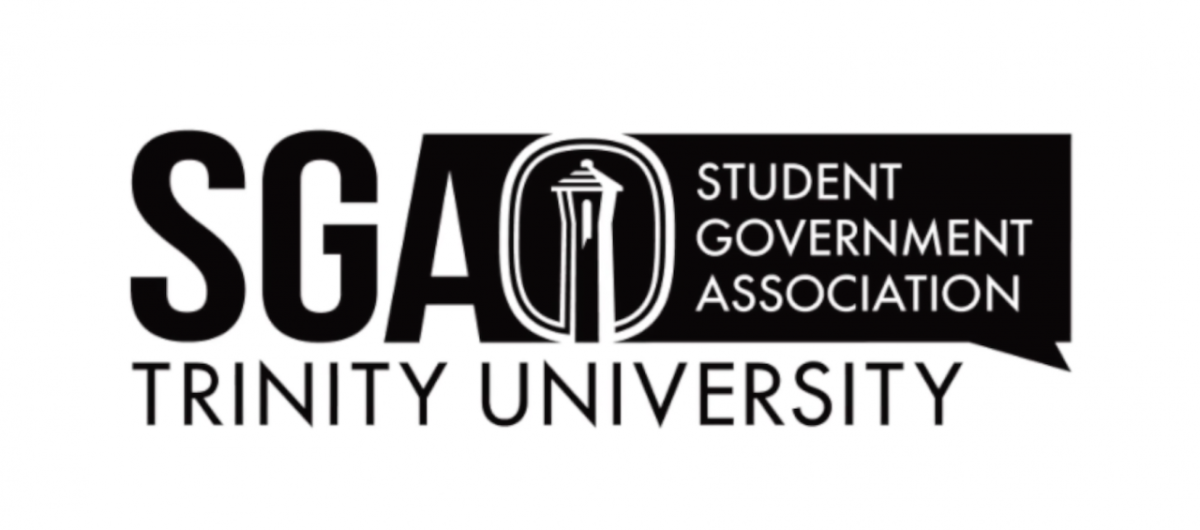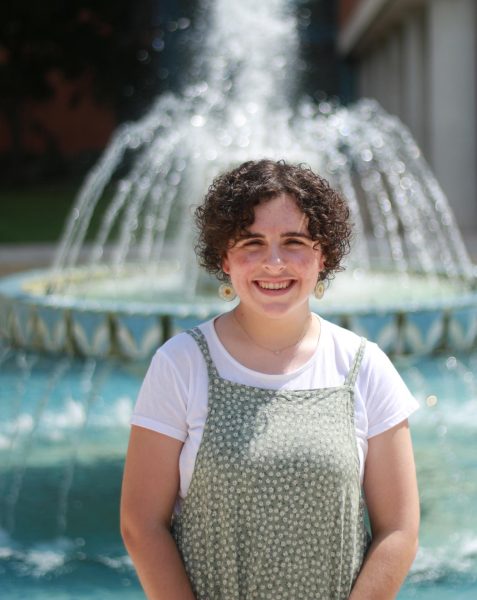SGA’s photo event was running long, leaving the Trinity University Police Department (TUPD) officers there for staff chats and the Trinitonian waiting alone in the Woodlawn Room for 10 minutes. The other members of SGA blamed President for their tardiness.
Staff Chat: TUPD Chief Paul Chapa and Assistant Chief John Rowse
Chapa, who has been working for around fifteen years as the TUPD chief, talked about how policing a campus looks very different from policing a city. He gave an overview of the 21st-century policing model, going over how TUPD works to fulfill the six pillars.
The first is building trust and legitimacy, which comes into play with TUPD’s state certifications and accreditations. TUPD aims to offer teaching moments rather than being overly punitive, and they partner with student organizations and other law enforcement to host community engagement events like Copcorn and Pan Dulce with the police to build trust with the community. The second is policy and oversight, which comes from their nine-week field training program for new officers, annual security report and open records requests.
The third is technology and social media. TUPD has a 24-hour emergency communications center, a state-of-the-art video surveillance camera system, the SEE SAY app and Axon body cameras, among other technological resources. The fourth is community policing and crime reduction, how police get people thinking about keeping themselves safe. Community engagement is an important part of this, with safety presentations, community crime alerts, updates on their website and campus patrols.
Annual training in bias and racial profiling, conflict de-escalation, firearms, high-stress situation management, first aid and more fulfill the training and education pillar. Finally, TUPD complies with the officer wellness and safety pillar with rowing machines at the police department office, Crossfit memberships for officers and other wellness and fitness resources.
Chapa showed a TUPD body camera footage compilation for the members of SGA, featuring everything from officers helping a student tie a tie to officers intervening in a domestic violence incident. Chapa then opened the floor for questions.
Sophomore Senator Bocar Diagana asked what the most common types of calls TUPD gets, and Chapa said they mostly receive service calls — unlocking doors and jump-starting cars. Junior Senator Harrison Tinker asked a series of questions about whether officers need to have their lights on when exceeding the speed limit since he saw a TUPD car near the William H. Bell Center exceeding the speed limit and running a stop sign with no lights on. In some situations, Chapa and Rowse clarified, officers may not turn on their lights, like in this case where the officer was likely going to provide backup to another officer.
Climate Check:
Sophomore Senator Odi Aneji declared that pescatarian rights are real and after giggling for a couple of minutes, explained that getting fish at Mabee Dining Hall is difficult with how hard it is to pin down managers at Mabee. She wants specialized fish options readily available rather than just by request. President Nguyen directed her to reach out to the Student Dining Advisory Committee.
First-year Senator Patricia Hermoso raised an issue about her and her friends’ rooms not getting cleaned on the dates provided in the schedule. Senator Tinker commiserated with Senator Hermoso since he has been complaining about this for years, taking issue that Trinity advertises a cleaning schedule in the dorms.
DEI Chair Trinity Hatchett talked about her harrowing experiences with parking next to the pillars in the CityVista parking garage, experiences many members of SGA shared. She asked if they could get padding or wrapping for the pillars, and President Nguyen told her to email Dylan Pflum, the CityVista residence life coordinator.
Officer Updates:
President Nguyen and Vice President Caterina Mora asked the members of SGA to accept the calendar invites for alumni events, Halloween on Oakmont and the SGA pickleball social.








